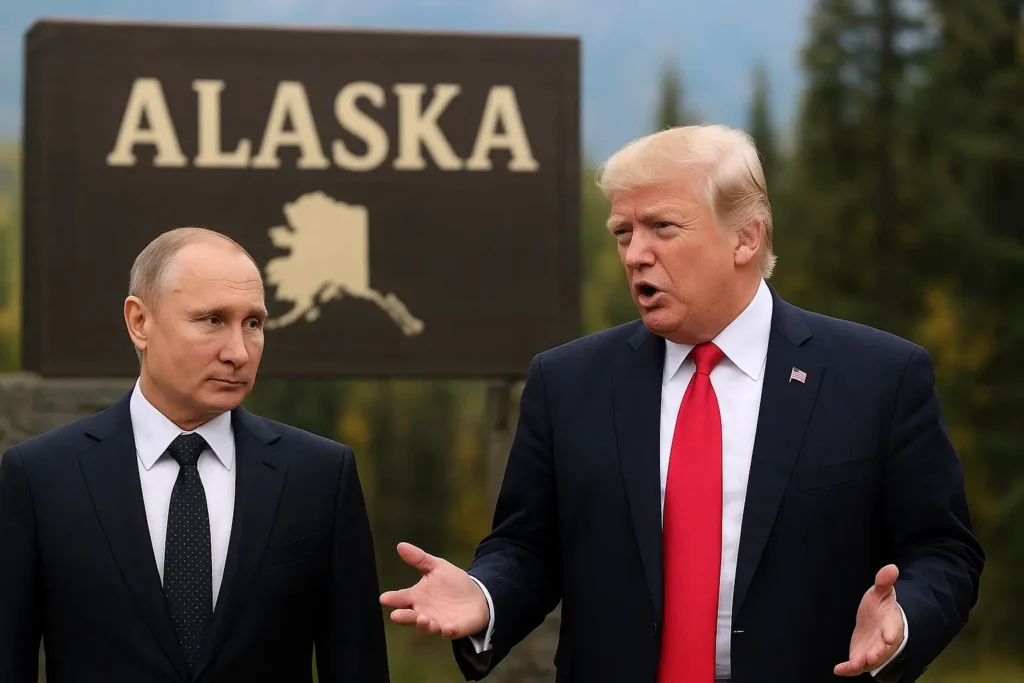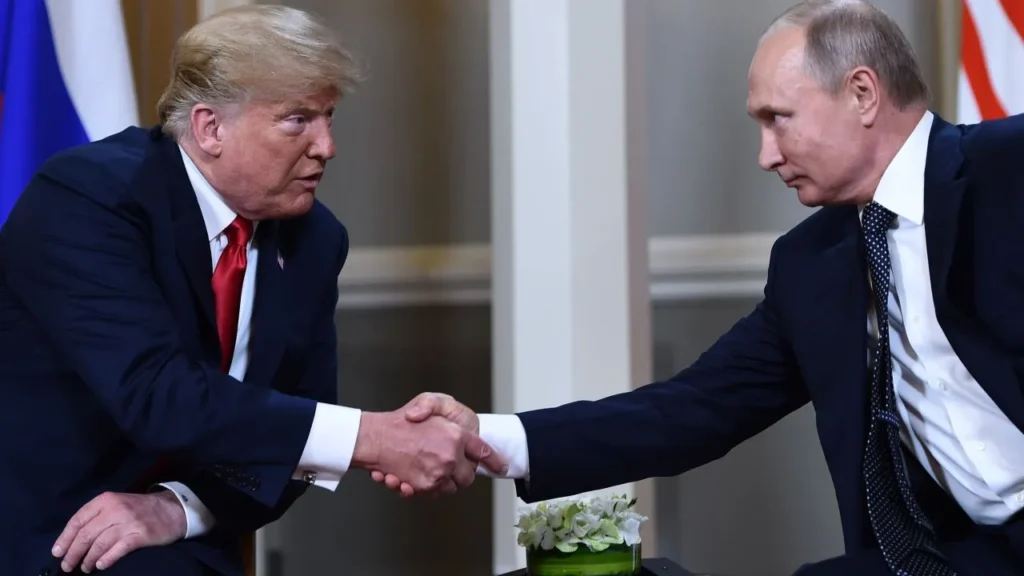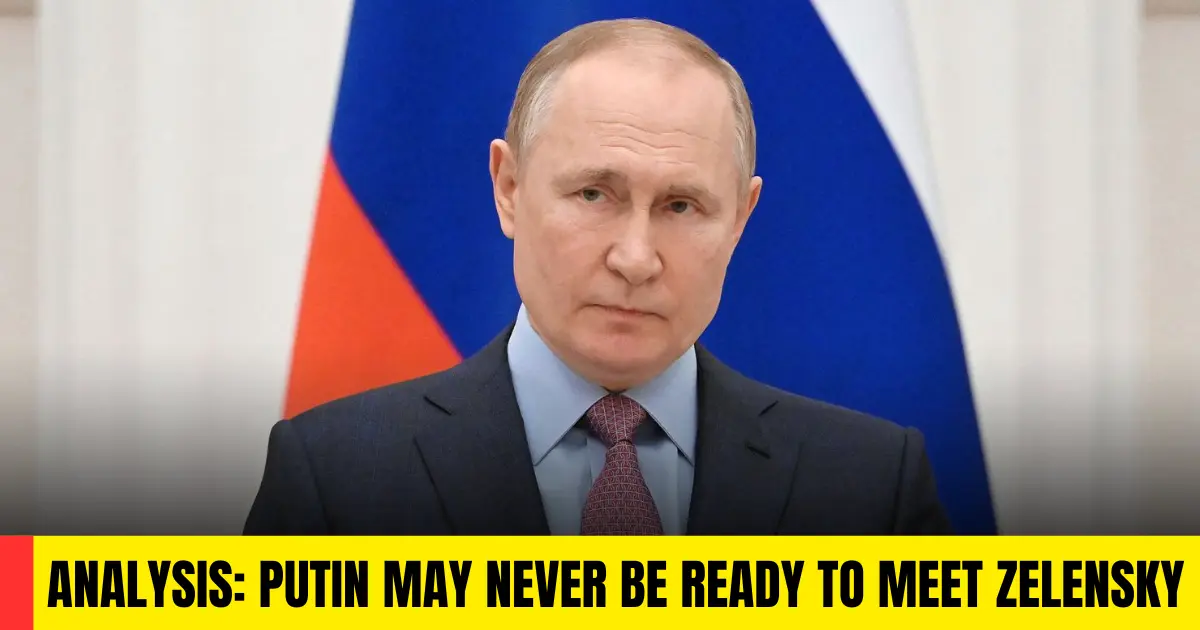Despite international pressure, Vladimir Putin shows little sign of engaging directly with Volodymyr Zelensky. Here’s a deep analysis of why a Putin-Zelensky summit may never happen.
Table of Contents
Analysis: Putin May Never Be Ready to Meet Zelensky
Introduction
Since the start of Russia’s full-scale invasion of Ukraine in February 2022, the possibility of direct peace talks between Russian President Vladimir Putin and Ukrainian President Volodymyr Zelensky has been a recurring question in international diplomacy. While global leaders, including those in Washington and European capitals, have urged dialogue, the Kremlin has consistently resisted any notion of Putin meeting Zelensky face-to-face.
A recent White House briefing revealed discussions about the “next steps” toward peace, including a potential meeting between the two leaders. Yet, Kremlin officials swiftly poured cold water on the idea. According to aide Yury Ushakov, the proposal amounted only to studying the “opportunity” of raising the level of representatives — a classic Kremlin signal that negotiations remain stalled.
The reluctance, or outright refusal, of Putin to sit down with Zelensky speaks volumes about the nature of this conflict. Beyond battlefield dynamics, this war is also about history, legitimacy, and worldviews. A neutral analysis shows that, given the current trajectory, Putin may never consider a direct meeting with Zelensky compatible with his political strategy or personal ideology.
Historical Context of the Conflict
To understand Putin’s resistance to meeting Zelensky, one must look back to the origins of the war. Moscow’s invasion did not emerge in a vacuum. In February 2022, Putin unilaterally recognized the so-called Donetsk and Luhansk People’s Republics as independent entities, dismissing Ukraine’s sovereignty over its own territory. He framed this recognition as a correction of “historical mistakes,” claiming that Ukraine is “an inalienable part” of Russia’s history, culture, and spiritual space.
This narrative underscores a fundamental clash: while Ukraine asserts its independence and European trajectory, Putin frames the country as a lost province of Russia. By his logic, engaging with Zelensky as an equal would legitimize Ukraine’s sovereignty — something he is unwilling to concede.
The Kremlin’s Disdain for Zelensky
The Kremlin’s rhetoric surrounding Ukraine’s leadership further illustrates its stance. Russian officials rarely refer to Zelensky by name, often dismissively labeling him part of the “Kyiv regime.” The language strips Zelensky of legitimacy in Moscow’s eyes, reducing him to a figurehead of what Russia describes as a Western puppet government.
The disdain is not just rhetorical. Putin’s government frequently questions the democratic legitimacy of Zelensky himself, particularly in light of Ukraine’s postponed elections under martial law. In its proposed peace terms, Moscow has even demanded that Ukraine hold new elections before any treaty is signed — a condition that effectively undermines Zelensky’s role.
This framing creates a paradox: how can Putin agree to a face-to-face meeting with a leader whose legitimacy he does not recognize? To do so would contradict years of Kremlin narrative-building.

Symbolism and Worldview: Why Trump, Not Zelensky
Another revealing point comes from Putin’s choice of interlocutors. For Putin, stature matters. He has long sought recognition as an equal to the leaders of global superpowers. His bilateral meeting with former U.S. President Donald Trump offered him that recognition.
Meeting Zelensky, however, would not fit this worldview. From Putin’s perspective, sitting across the table from the Ukrainian leader would diminish Russia’s image of dominance. It would symbolically place Russia and Ukraine on equal footing — something the Kremlin has resisted from the beginning of the war.
In May 2022, Zelensky traveled to Turkey for the first direct talks between the two nations. Putin, however, declined to attend personally. Instead, he dispatched a delegation led by a historian who authored textbooks on Russian imperial history — another signal that he did not view the Ukrainian president as a peer worthy of his own presence.
Domestic Politics and Control of Narrative
Putin’s avoidance of Zelensky also serves domestic purposes. Within Russia, state-controlled media portrays Ukraine as an illegitimate state under Western influence. A televised handshake with Zelensky could undermine this portrayal, contradicting years of propaganda.
The Kremlin maintains tight control over narratives presented to the Russian public. By refusing to engage with Zelensky, Putin ensures that Ukrainians remain depicted as adversaries rather than potential negotiating partners. This bolsters his claim that Russia is not fighting Ukraine per se, but rather NATO and the West, with Ukraine merely as a proxy.
The Practical Obstacles to Talks
Even beyond ideology, there are practical barriers. The conditions each side demands for peace remain irreconcilable. Ukraine insists on the restoration of its territorial integrity, including Crimea, and on justice for war crimes committed during the conflict. Russia, meanwhile, insists on recognition of its control over seized territories and demands neutrality from Kyiv.
These positions leave little common ground for negotiation. In this context, a Putin-Zelensky summit would serve little purpose — it would likely fail before it even began.
International Pressure and Diplomatic Theatre
Despite these obstacles, international actors continue to push for dialogue. Washington, Brussels, and other capitals regularly float the possibility of talks. Yet such proposals often function more as diplomatic theatre than as realistic options.
By signaling openness to talks without committing, the Kremlin gains time and creates the appearance of flexibility. However, the repeated downgrading of talks — from presidential to ministerial to technical levels — reflects the reality: Putin is unwilling to meet Zelensky in any meaningful format.
What This Means for the War’s Future
The absence of direct talks between Putin and Zelensky suggests that the war may remain a long-term conflict. Without top-level dialogue, ceasefires and peace agreements remain distant. Instead, battlefield developments, Western military support for Ukraine, and Russia’s economic resilience will continue to dictate the war’s trajectory.
For Zelensky, the absence of dialogue presents challenges. His government must maintain Western support and domestic unity without the prospect of negotiated breakthroughs. For Putin, refusing talks helps preserve his narrative but risks prolonging a costly war.

Conclusion
The prospect of a meeting between Putin and Zelensky is not just unlikely — it may be fundamentally incompatible with Putin’s worldview. To meet would be to legitimize Zelensky as Ukraine’s rightful leader and acknowledge Ukraine’s sovereignty, both of which clash with Moscow’s objectives.
For now, Putin appears content with symbolic meetings with Western leaders, where he can project himself as an equal. Zelensky, meanwhile, continues to press Ukraine’s case on the global stage, rallying international support. Until one side shifts dramatically in position or leverage, a Putin-Zelensky summit will remain a distant — perhaps impossible — scenario.
FAQs
1. Why won’t Putin meet Zelensky directly?
Putin does not recognize Zelensky’s legitimacy and sees Ukraine as historically part of Russia. A meeting would contradict his narrative and worldview.
2. Has Zelensky tried to meet Putin?
Yes. In May 2022, Zelensky traveled to Turkey for direct talks, but Putin refused to attend and instead sent a delegation led by a historian.
3. What role does international pressure play?
Western leaders continue to encourage dialogue, but the Kremlin often uses such discussions as diplomatic theatre without genuine intent.
4. Could circumstances change and force a meeting?
Only if battlefield or political dynamics shift dramatically. At present, both sides maintain irreconcilable positions.
5. What does this mean for the war’s future?
Without direct talks, the conflict is likely to drag on, with military outcomes and international support playing decisive roles.
